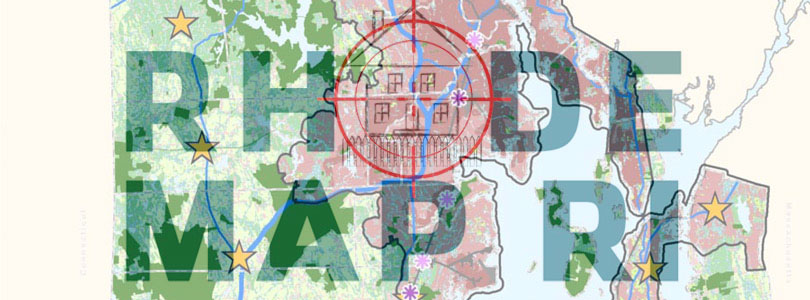The Racism in Central RhodeMap Planning
Based on the accounts of people who were there, Kate Bramson’s Providence Journal article about a RhodeMap RI Consortium meeting on Wednesday doesn’t come close to capturing the tenor of the meeting. Bill Rappleye’s NBC 10 report comes much closer:
Click here if video does not appear above.
People who attended the meeting also report an incident involving a member of the RhodeMap RI consortium who likened people in the audience to members of the Ku Klux Klan.
The quick resort of members of the consortium to charges of racism is a predictable and unjust tactic designed to shut down debate and push through their plans for our communities. Indeed, RhodeMap RI’s draft report, itself, offers the following as one of the “principles [that] have been developed to help committees and the overall Consortium” achieve their goals “once all plans are completed and implemented”:
Do not shy away from frank discussions. Get comfortable with words we don’t like to use, such as segregation and racism. Be explicit about the role that race and ethnicity play in the distribution of benefits and burdens in Rhode Island.
The tactic itself is deeply racist. Members of the consortium accuse the audience — people whose communities they’re presuming to plan for them — of racism as a means of shutting down debate to push their plans through. The assumption is that Rhode Islanders’ concerns for their own property and their own rights must be racist because they’re white. It’s dismissive, dehumanizing, and shameful.
As a point of fact, the phrases “property rights” and “freedom” do not appear once in the 186-page RhodeMap RI document, and there does not appear to be a single instance of concession that people have rights that planners should respect. As the audience members discovered, bringing those concepts into the discussion marks one as racist in the eyes of government functionaries.
In terms of the effect that it will have on minority groups, the plan itself is even more fundamentally racist than just its bullying tactics.
In America, our freedoms and property rights are critical to the ability of individuals and families to advance, to pull themselves out of poverty and beyond a state of financial struggle. What the planners envision is a starkly divided society in which people on one side of an “urban services boundary (USB)” pay a premium to subsidize the housing and services of people on the other side.
The practical effect of this plan will be to make property outside of the boundary more expensive to own and maintain, while making residents within the boundary more dependent on the subsidies that their location provides. The incremental steps by which individuals and families can get closer and closer to the homestead and lifestyle that they want will be erased.
The consequences of this invisible wall around poor and working-class communities will be most profoundly felt by minority groups whose families are most in need of having steps to climb.


